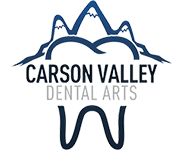Doing more than cleaning your teeth

“I’m just here to get my teeth cleaned.” As a dentist, I see a large number of patients each week, who come in with one purpose, “just clean my teeth.” Many patients assume that they are in good overall health, with that one statement. However, while true of most patients, there is a group of patients that assume they are in good health but are showing risk factors for a disorder that can be debilitating and contribute to many other health problems. This disorder has to do with a personal ability to breathe and get oxygen in and out of their lungs. According to the American Academy of Sleep Medicine, 26% of adults ages 30-70 suffer from some form of obstructive sleep apnea. This disorder is often called Obstructive Sleep Apnea.
I want to discuss in general terms of adults which adults are most at risk from restricted airway breathing and how that can lead to the most severe sleep apnea consequences.
Did you know that your dental team should be doing a screening of your upper airway on your periodic visits?
The potential signs of restricted airway include tooth grinding, tooth wear, tooth decay, crowded teeth, nasal issues, obesity, mouth breathing and snoring. Often times your significant other may be the best person to ask to see if they have noticed any specific sleep issues as well, such as struggling to breathe while sleeping as well.
What are some things that my dentist should be looking for in my mouth?
In my practice, I do multiple screenings on patients nearly every time I see them. I do a cancer screening, a Temporal Mandibular Joint exam (assessing the stability of joints around your jaw), and I also do an upper airway evaluation. This consists of looking in the back of the throat, assessing the tongue and looking for specific wear around your teeth. A healthy airway would appear with a throat that is open, not restricted by enlarged tonsils or adenoids. The tongue would not be over-enlarged and would not have scalloping along the edges. The teeth would not be excessively worn down due to nighttime grinding.
Is there anything that my dentist can do to my teeth that would help me breathe better?
The best thing a dentist can do to often help a person who may or may not have upper airway restriction is to allow for a larger “intra-oral volume”. Many times, as a person grows or develops their teeth collapse and are “crowded”. This crowding of the teeth along with collapsed jaw bones restrict the area where the tongue can rest. As a result, the tongue drops towards the back of the throat, especially at night and can cut off the airway. A dental team can help patients by restoring teeth or moving the teeth in a way that allows more space for the tongue to rest and increase the overall volume of air that can come in and out of our airway.
If left untreated the constant stain placed on the heart and brain due to lack of air, coupled with poor sleep quality can result in many health complications. These complications can include insomnia, chronic fatigue syndrome, fibromyalgia, gastrointestinal issues, depression, anxiety, nighttime teeth grinding, and cardiovascular difficulties like high blood pressure and stroke.
Although your dentist may not be the only doctor who helps treat a person with restricted airways, your dentist can play a critical role in identifying patients who are at risk. Given the potentially serious complications, it is critical to work closely with your doctor to screen for airway issues and develop a treatment plan that meets your unique needs.
As a patient, you should expect more of your dental care than just cleaning your teeth. If you feel that you may be at risk of a restricted airway there are many people who are able to help get you pointed in the right direction. Your dental team should be at the forefront of your overall health and will allow you to have clean teeth and better improved overall health.
